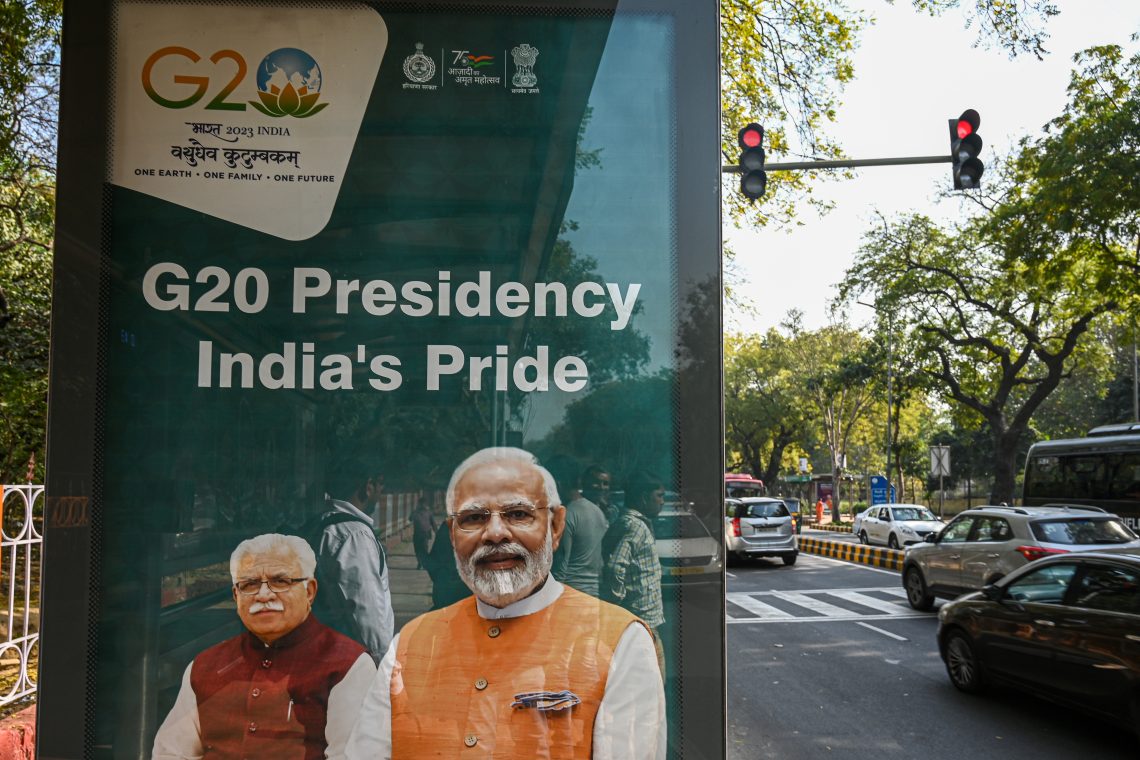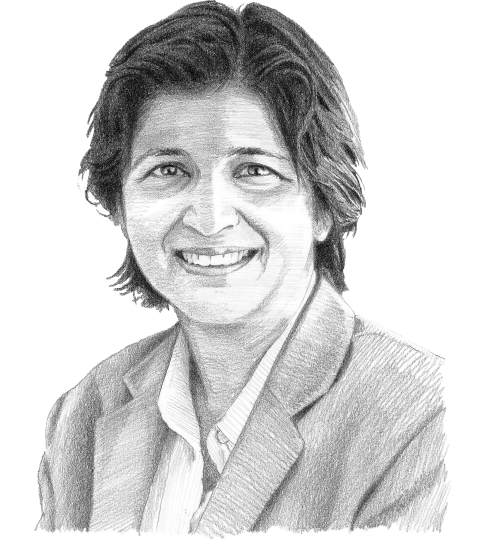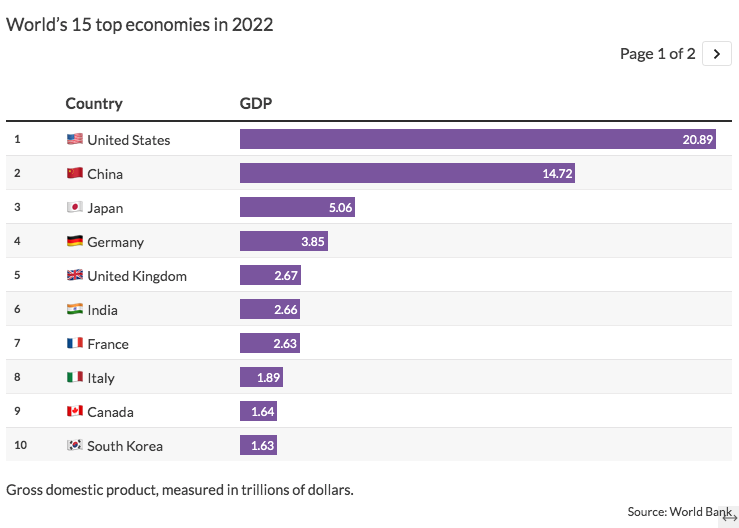India basks in prominence on the global stage
By hosting key international events this year, New Delhi hopes to reshape the world in its favor.

In a nutshell
- India hosts G20, Shanghai Cooperation Organisation and Global South meetings
- Prime Minister Narendra Modi is using the events to bolster India’s image
- New Delhi’s themes are multipolarity, nonalignment and developing nations
Indian officials expect 2023 to be their nation’s year. The world’s most populous country with one of its fastest-growing economies, India is also rising in prominence on the diplomatic front. The nation will host the G20 summit for the world’s largest economies as well as the China-led Shanghai Cooperation Organisation (SCO). India is a participant at the G7 summit and convened the Global South Summit in January.
India has long sought a better place at the global table. Leading the G20 and SCO summits shows the country has finally become a major player. Prime Minister Narendra Modi wants to go into the next Indian general elections, expected in 2024, highlighting the rise in India’s prestige.
New Delhi is being pursued simultaneously by the United States and its allies, Russia and the Global South. This courtship carries symbolic value for one of the government’s core foreign policy aims: securing global recognition of India’s rise.
Facts & figures
About the G20
The Group of 20 (G20) is a top intergovernmental forum for international economic cooperation. India holds the presidency of the G20 from December 1, 2022, to November 30, 2023. The theme of India’s G20 presidency is “One Earth, One Family, One Future.” The main event takes place this year in New Delhi on September 9-10.
The G20 comprises 19 countries (Argentina, Australia, Brazil, Canada, China, France, Germany, India, Indonesia, Italy, Japan, the Republic of Korea, Mexico, Russia, Saudi Arabia, South Africa, Turkey, the United Kingdom and the United States) and the European Union. The G20 members represent around 85% of the global economic output, over 75% of the global trade and about 66% of the world population.
An international agenda amid domestic politics
There is also a strong domestic politics angle to multilateral engagements. The Modi government is keen to showcase 2023 as “The Year of India.” This started with celebrations of the 75th year of India’s independence and has continued since then. Every discussion, dialogue, engagement or summit is geared to project India as a global power.
For Mr. Modi, the international courting of India amounts to recognition of India as a “Vishwa Guru” or “Global Teacher.” He wants to take credit for India as a country that leads by example and is respected by everyone. The ruling Bharatiya Janata Party (BJP) hopes to bask in the international attention that comes from the summits and Prime Minister Modi’s upcoming visit to the U.S., possibly in June, as well as the potential visit to India by President Joe Biden for the G20.
New Delhi also wants to use the G20 presidency to balance its close ties with the West and its historical claim to strategic autonomy and leadership of the world’s have-nots. India, like many countries in the Global South, wants to balance relations with China and America, while also having security and other benefits of close ties with the U.S. For its part, the U.S. and many of its allies appear willing to concede that India’s diplomatic leverage and soft power are useful for their goals in a multipolar world.
Understanding that the current global environment precludes concrete outcomes, such as a consensus on Russia’s war against Ukraine, India is working to ensure that the various summits hosted by India in 2023 showcase the nation’s clout. This was on full display at the Global South Summit, where India sought suggestions from the 125 countries who participated in the virtual summit on themes for the G20 summit. The event allowed India to position itself as a leader of the Global South.
New Delhi has watched with concern as many of its immediate South Asian neighbors have become deeply indebted to China.
The echoes of Prime Minister Jawaharlal Nehru
Prime Minister Modi declared at the Global South Summit, echoing India’s first Prime Minister Jawaharlal Nehru, that “India, on the one hand, maintains close relations with developed countries, and at the same time understands and articulates well, the point of view of developing countries.” India’s G20 priorities reflect goals that appeal to fellow G20 countries and to those from the Global South.
India has also used the G20 forum to bolster ties with partners in the Middle East, Africa and Asia. India has invited nine guest countries to the G20 summit – Bangladesh, Egypt, Mauritius, the Netherlands, Nigeria, Oman, Singapore, Spain and the United Arab Emirates. Seven of these nine are from the Global South and three of them – Bangladesh, Oman and Mauritius – have never participated in the G20 before.
India’s long-term goal is to seek reform of the United Nations to obtain a permanent seat on the Security Council. But India also knows that UN procedures make such changes unlikely anytime soon. It is, therefore, trying to use international forums to continue advancing the need for multilateral institutions to cater more to the needs of less developed countries.
As a first responder for humanitarian assistance and disaster relief, and a country that faces climate-related disasters, India supports multilateral climate finance to address mitigation and adaption efforts. India has also pushed for the creation of the first G20 working group on disaster risk reduction that would encourage broader research and exchange of best practices.
India provides developmental aid to most of its South Asian neighbors and to countries in Asia and Africa and sees debt sustainability as a major concern. New Delhi has watched with concern as many of its immediate South Asian neighbors have become deeply indebted to China. India has then had to step in, along with such Bretton Woods institutions as the International Monetary Fund and World Bank, to help countries like Sri Lanka and Maldives recover and rebuild. India would like the G20 to “collectively work to strengthen multilateral development banks for meeting global challenges like climate change and high debt levels.”
Facts & figures
The need for foreign investment and technology
Despite its economic growth, India still needs foreign investment and technology to raise the living standards of its 1.4 billion people. A slow-growing global economy combined with rising protectionism – also practiced by India – creates challenges to rapid economic expansion. India sees the G20 as a forum for offering Indian digital public infrastructure in return for civilian and military technology and foreign investment.
One of the highlights of every G20 summit is a large number of nongovernmental initiatives on issues like business, gender, think tanks, science, space, youth and labor. India has launched Startup20, which would focus on “synergies between start-ups, corporates, investors, innovation agencies and other key ecosystem stakeholders.”
Slogans and symbolism are the foremost deliverables tied to India’s G20 presidency. The theme of this year’s G20 is the ancient Indian concept of Vasudhaiva Kutumbakam (“One Earth, One Family, One Future”). Government of India tweets, emails, letters and event materials bear the G20 logo. It has generated acronyms like LiFE (for “Lifestyle for Environment”) and made the summit theme into a popular slogan.
India’s public relations effort is based on the idea that India’s G20 agenda is “inclusive, ambitious, action-oriented, and decisive” and that India’s G20 presidency will be one of “healing, harmony and hope.” Indians are being told that the summit recognizes its unique place in the world.
Beyond the symbolism, New Delhi is also keen that discussions and statements address issues that matter to India. Like at the March G20 meeting of foreign ministers, the September summit may also find the consensus needed for a joint statement on Ukraine.
The Modi administration wants India to be one of the poles of a multipolar world.
Expect criticism of Pakistan
But India will most likely push for strong references to terrorism in G20 statements, in language that identifies Pakistan as the regional culprit. Criticism of Pakistan, however oblique, is important, given the desire of the Indian prime minister and his party to cash in international goodwill as voters start thinking about their choices in the next Indian elections. For the average Indian, alarm about Pakistan is of more concern than India’s relations with Russia or the U.S. The challenge for India lies in the fact that while Washington and its partners back India’s efforts to project power in its neighborhood and resist China, they remain cautious about any escalation of conflict on the India-Pakistan border.
India hopes to use the G20 summit to showcase how it has leveraged its soft power, moral stature and economic and military potential to befriend most countries of the world. The Modi administration wants India to be one of the poles of a multipolar world. But for all its vocal moralistic idealism, the country’s foreign policy has a hard-nosed realist underpinning.
For instance, India’s primary grievance tied to the war in Ukraine is geopolitical. New Delhi’s preference is for a stronger Russia that keeps a rising China in check. A weaker Russia that is dependent on China creates multiple challenges for India.
China lays claim to large segments of Indian territory and is a greater source of unease for India than the superpowers during the Cold War.
The policy of nonalignment helped India maintain good relations with both the U.S. and the Soviet Union without having to pick sides. A seemingly bipolar world, with China and the United States as the two contenders for preeminence, is anathema to India as it would force India to make choices – something it has studiously avoided doing through much of its history.
Scenarios
While India’s summit diplomacy in 2023 will increase its soft power, it is unlikely to add to its hard power. For all the fanfare, India’s position in global geopolitics will not gain much.
The most likely outcome is that irrespective of what happens at the G20 summit, the presidency is seen as a success for Indians. The ruling political party will use the international wooing of New Delhi to advance its electoral campaigns. Predicting an election that is one year away is impossible, but Mr. Modi’s forces appear to be in a strong position.
It is possible that Russia will not attend the G20 summit or will send a low-level delegation because of worsening relations with America. India will try to convince Russia to attend, but will spin the event as a success, regardless. A less likely scenario is that Russia does not attend, and Chinese aggression increases along the 2,167-mile border with India. Defusing these issues and showing that India has good relations with all countries will require deft diplomacy. Success will enhance India’s global clout.










